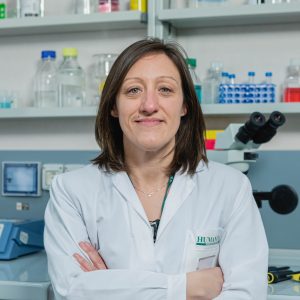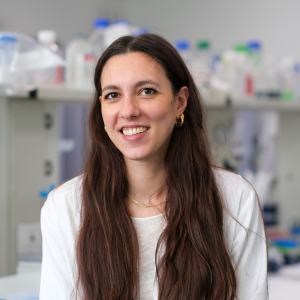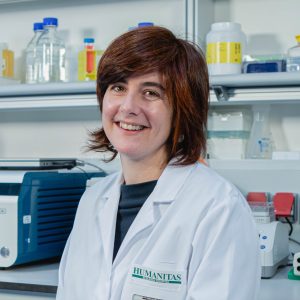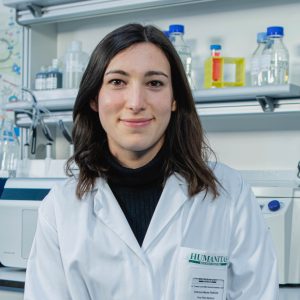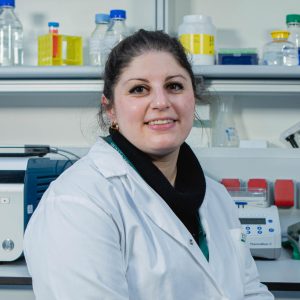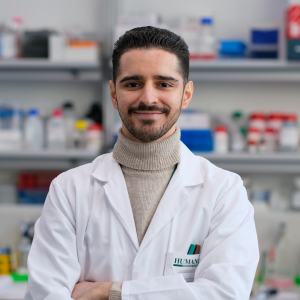Research Group
Di Mitri Group
Tumor Microenvironment Lab
Our lab investigates the mechanisms exploited by tumors to evade the immune response and to re-educate the immune infiltrate in its favor, by combining multi-parametric flow cytometry, spatial multiomics approaches and advanced RNA sequencing.
The challenge
The tumor microenvironment (TEM) is a complex ecosystem of different types of cells and tissues that surround the tumor and under its molecular signaling sustain its growth and progression. There is extensive evidence that within this microenvironment, cancer cells are able to reprogram the immune system towards pro-tumoral behaviors, as proven by the efficacy of immune-checkpoint inhibitors and immunecell-based therapies. However, we still know very little about the crosstalk between cancer and the immune system in the tumor microenvironment. In these unknown interactions – that thanks to new technologies we can now describe with unprecedented detail – hide precious insights for the development of novel immunotherapy strategies.
Main research areas
Profiling of tumor-associated macrophages in cancer
To better understand the mechanisms underlying immune evasion and leading to tumor progression and resistance to therapy in prostate cancer and melanoma, we are profiling the immune microenvironment in urogenital tumors and and melanoma by mean of FACS and transcriptomic analysis, at different progression stages. In a recent study, we uncovered the infiltration of a subset of macrophages that accumulates lipids, shows pro-tumoral features and supports cancer invasion. We also identified the scavenger receptor involved in the lipids intake and demonstrated that its inhibition in-vivo reduces tumor growth and invasiveness.
NK cells impairment and NK-based cell therapies in solid tumors
Natural killer (NK) cells are a specialized population of immune cells that mediates cytotoxic action against damaged, infected and tumor cells. Our lab investigates the crosstalk between cancer and NK cells, both in vitro and ex vivo. We are applying high dimensional approaches to explore their spatial localization, phenotype and transcriptional landscape in urogenital cancers and melanoma, and we are testing the proof of concept of new NK-based cell therapies that overcome the mechanisms leveraged by the tumor to impair NK cells action.
Immune-profiling of cancer patients
We combine multi-parametric flow cytometry, spatial proteomic analysis and RNA sequencing approaches to provide a comprehensive characterization at single cell level of the immune landscape in cancer patients. We are investigating the cell dynamics within the tumor immune microenvironment and at the periphery to unveil mechanisms that drive and predict tumor progression and resistance to therapies.
Selected publications
Macrophages and bone metastasis.
Multimodal single-cell profiling of intrahepatic cholangiocarcinoma defines hyperactivated Tregs as a potential therapeutic target.
Lipid-loaded macrophages as new therapeutic target in cancer.
Lipid-loaded tumor-associated macrophages sustain tumor growth and invasiveness in prostate cancer.
Neutrophil diversity and plasticity in tumour progression and therapy.
Re-education of Tumor-Associated Macrophages by CXCR2 Blockade Drives Senescence and Tumor Inhibition in Advanced Prostate Cancer.
IL-23 secreted by myeloid cells drives castration-resistant prostate cancer.
Compartmentalized activities of the pyruvate dehydrogenase complex sustain lipogenesis in prostate cancer.
The p38 mitogen-activated protein kinase cascade modulates T helper type 17 differentiation and functionality in multiple sclerosis.
Tumour-infiltrating Gr-1+ myeloid cells antagonize senescence in cancer.
Reversible senescence in human CD4+CD45RA+CD27- memory T cells.
Group members
